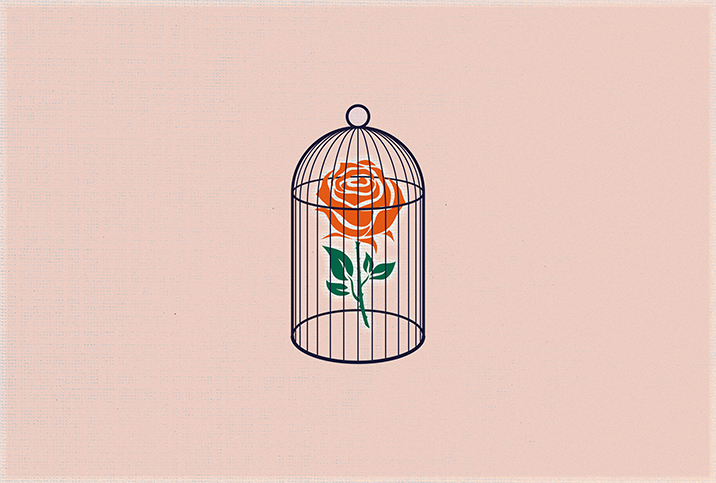How Do I Know When TikTok Promotes Birth Control Misinformation?

Influencers on TikTok may brand themselves as wellness experts, period coaches, hormone-balancing coaches or fertility-awareness educators. As of late, though, content creators in the birth control corner of TikTok are dispensing plentiful misinformation.
Posts about coming off birth control and the reasons behind why others should, too, are extensive.
TikTok can be an excellent source for all sorts of life hacks. But hacking your way out of using a safe, effective, science-backed approach to contraception due to the advice of a nonmedical professional can be harmful.
What's driving the increase of misinformation on TikTok?
"The increase in birth control disinformation can be attributed to a variety of factors, including political agendas, religious beliefs and lack of education on reproductive health. Some groups may spread misinformation about birth control in an attempt to discourage its use or promote their own beliefs about sexuality and reproduction," said Martha Tara Lee, D.H.S., an AASECT-certified sex educator and a clinical sexologist.
Wellness coaches on TikTok sometimes promote a product in conjunction with their advice, such as supplements, courses or coaching.
Sometimes, the myths are driven by anecdotes from social media influencers. They note their personal experiences with birth control's side effects, such as weight gain, and urge others to get off birth control to avoid similar symptoms.
Regardless, it's essential to correct some birth control myths. If you're seeking more information about whether the contraceptive information you see on TikTok is true or false, the best person to answer your questions is your doctor or OB-GYN.
Myth 1: Fertility awareness methods are just as effective as hormonal birth control methods
Fertility awareness methods such as the calendar method or natural family planning involve carefully tracking your menstrual cycle each day to predict ovulation.
For those who use such methods, as many as 24 out of 100 women could become pregnant within the first year of use, according to Mayo Clinic.
The birth control pill, however, is 99 percent effective when taken daily, according to Planned Parenthood.
Promoting the fertility awareness method over hormonal birth control options is sometimes driven by the myth that birth control is "bad" for you and natural ways are best. The hashtag "natural birth control" on TikTok has amassed 76.9 million views.
Ultimately, how someone chooses a birth control method is up to that individual, but it's important to have the facts on efficacy and safety.
"Hormone-free family-planning methods, such as the rhythm method or fertility awareness-based methods, are less effective than other forms of birth control," Lee said. "These methods rely on tracking a woman's menstrual cycle and avoiding sex during her fertile period, but they are not foolproof and can result in unintended pregnancy."
Myth 2: Hormonal birth control causes abortions
An abortifacient is a substance used to terminate a pregnancy. Hormonal birth control does not end a pregnancy. Hormonal birth control prevents ovulation, so there is no egg for sperm to fertilize, Lee explained.
"Hormonal birth control cannot change an already implanted pregnancy. The main way hormonal birth control works is either by preventing ovulation or thickening cervical mucus or both," said Staci Tanouye, M.D., an OB-GYN in Jacksonville Beach, Florida.
Myth 3: Birth control leads to infertility
You can get pregnant as soon as you begin ovulating after ceasing to use birth control. But several TikTok users claim birth control leads to infertility.
"Using birth control can actually help protect against certain conditions that can lead to infertility, such as pelvic inflammatory disease," Lee said.
Menstrual cycles will typically resume within a few weeks when stopping most hormonal contraception methods. You don't need to detox from birth control to get pregnant.
"No method of birth control except for permanent sterilization can cause infertility," Tanouye said. "The injection is the only method that may delay the return of normal ovulation longer than other methods, up to a year delay of return to fertility."
Myth 4: Birth control causes cancer
"This is a myth that has been debunked by numerous studies. Some types of birth control, such as the pill, have been shown to reduce the risk of certain types of cancer, such as ovarian and endometrial cancer," Lee said, adding that birth control may also reduce colorectal cancer rates.
Tanouye explained that there's some nuance behind the correlation between birth control and cancer.
"Birth control pills reduce overall cancer risk when all forms of cancer are taken into consideration," she said. "This is because there may be a slight increased risk of breast and cervical cancers while someone is taking oral contraceptives, although the data is mixed on this. But once they stop taking them, their risk returns to their baseline within five years.
"On the other hand, oral contraceptives significantly decrease the risk of ovarian and uterine cancer, up to 30 to 50 percent reduced risk for both. This reduced risk is thought to be long-term," Tanouye said.
What should I know about birth control and social media platforms?
Young women of reproductive age may flock to social media for sexual health advice. But it's important they check credentials. Ensure you're only absorbing advice from people with trusted and credentialed backgrounds, such as medical doctors or other healthcare professionals.
"In a post-Roe era, access to accurate information on birth control is more important than ever. If access to abortion is restricted or eliminated, women will need reliable and effective forms of birth control to prevent unintended pregnancy and maintain control over their reproductive health," Lee said.
It's vital to have accurate information on all contraceptive methods, Tanouye said. Women need to make informed decisions on how to best prevent pregnancy and plan their lives, especially if their choices to end a pregnancy are limited.
"We can have honest and accurate discussions of all the risks and side effects of contraceptive methods while also discussing the true rates of these risks as well as the many potential benefits," Tanouye added. "We can also do this while acknowledging that some people will have bad experiences with each method, and the majority of people will actually have good experiences with each method."
The bottom line
Some social media influencers push their agenda to sell products or gain attention. Others may have legitimate bad experiences and want to share potential side effects with others. However, unless the social media user is also a doctor, it's best to leave your healthcare to someone with years of training and experience behind them.
Do you have questions about birth control but are currently searching for a physician? Giddy Telehealth is an easy-to-use online portal that provides access to hundreds of healthcare professionals whose expertise covers the full scope of medical care. Choose from in-person or video consultations.


















